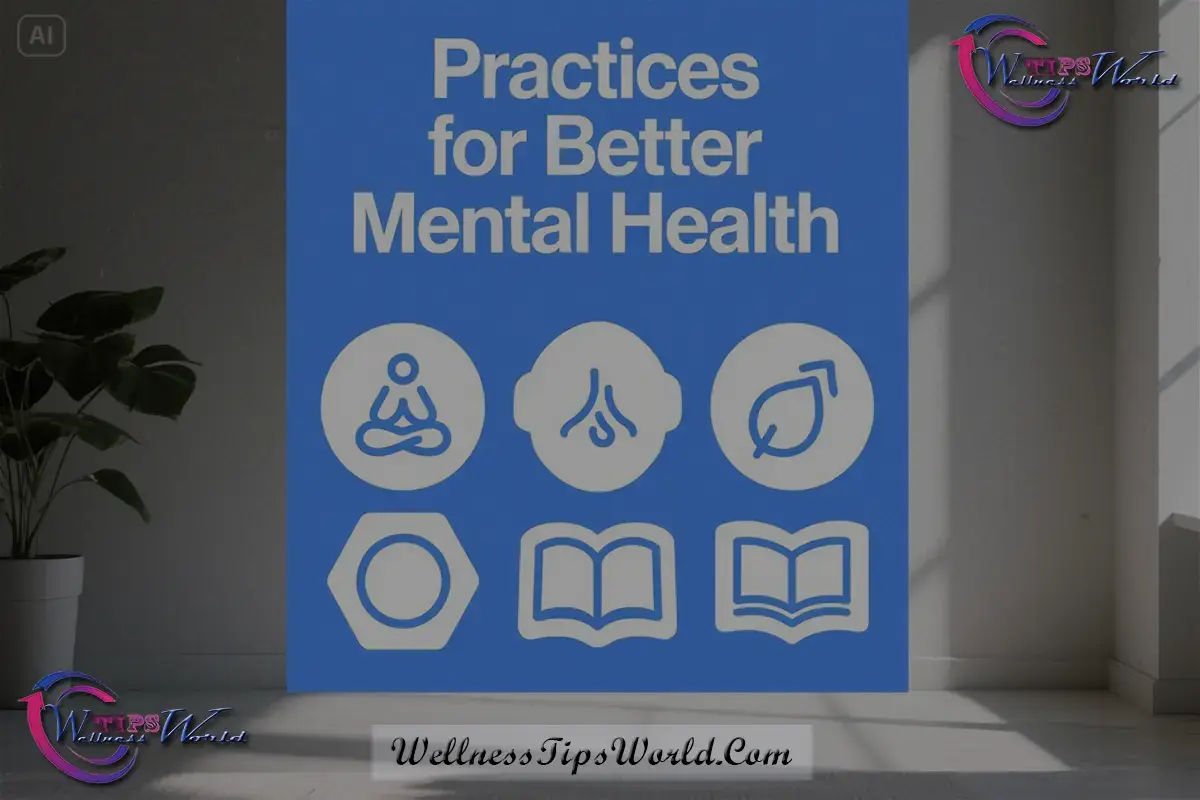How Sleep Impacts Your Mental Health and Well-being

Sleep is a fundamental aspect of human health, yet it's often overlooked in our fast-paced, always-connected world. In our daily lives, we prioritize work, social obligations, and entertainment, often at the expense of sleep. However, the connection between sleep and mental health is undeniable, and understanding this relationship is crucial for achieving optimal well-being.
In this article, we’ll explore how sleep affects mental health, the importance of adequate rest, and practical tips to improve your sleep quality for better mental well-being.
Why Sleep Matters for Mental Health
Sleep isn't just a time for your body to rest; it's essential for the proper functioning of your brain. During sleep, your brain consolidates memories, processes emotions, and clears toxins that accumulate during the day. When sleep is disrupted, these processes are hindered, leading to negative impacts on both emotional health and cognitive function.
Restful sleep helps regulate mood and emotional reactions. It helps maintain the balance of hormones like cortisol (the stress hormone) and serotonin (the feel-good hormone). When sleep is deprived or inadequate, these hormones can fluctuate, leading to feelings of anxiety, depression, and irritability.
How Sleep Deprivation Impacts Mental Health
Lack of sleep is a significant contributor to a wide range of mental health disorders. Here's how sleep deprivation can affect you:
1. Increased Anxiety and Stress
When you're not well-rested, your body is more susceptible to stress. Sleep deprivation heightens the body's response to stress and can increase anxiety. A lack of sleep makes it harder to manage stressful situations, and you may find yourself overreacting or feeling more on edge than usual.
2. Depression
Research has found a significant link between lack of sleep and depression. Poor sleep can trigger symptoms of depression or exacerbate existing depressive conditions. Conversely, people who suffer from depression often report sleep disturbances, creating a vicious cycle that worsens their mental health over time.
3. Cognitive Decline
Sleep is crucial for cognitive functions such as memory, attention, and problem-solving skills. Chronic sleep deprivation can impair these functions, making it difficult to focus, retain information, and make decisions. Over time, this may contribute to more severe cognitive conditions such as dementia and Alzheimer’s disease.
4. Mood Swings and Irritability
Sleep plays an essential role in regulating emotional responses. Without enough rest, the brain has difficulty processing emotions, making you more prone to mood swings. You may feel irritable, impatient, or easily upset over minor issues.
How Much Sleep Do You Need?
Sleep needs can differ based on age, lifestyle, and individual factors. Still, the National Sleep Foundation offers general recommendations for ideal sleep duration:
- Adults (18–64 years): 7–9 hours per night
- Adults aged 65 and older should aim for 7 to 8 hours of sleep each night.
- Teenagers (14–17 years): 8–10 hours per night
- Children (6–13 years): 9–11 hours per night
These recommendations can be adjusted based on personal factors like physical activity levels, stress, and health conditions. Quality of sleep is just as important as the duration, so even if you sleep for a full 8 hours, poor sleep quality can still negatively affect your mental health.
How Sleep Improves Mental Health and Well-being
Getting enough quality sleep can have a profound effect on your overall mental health. Here are several ways sleep can enhance your overall well-being:
1. Enhances Emotional Regulation
Getting enough sleep helps regulate emotions and lowers the chances of experiencing severe mood swings. A good night’s rest supports the brain’s ability to manage emotions, leading to a more positive outlook and increased resilience against stress.
2. Boosts Cognitive Function
Sleep plays a vital role in strengthening memories and clearing the brain of toxins that accumulate during the day. This leads to better focus, clearer thinking, and enhanced problem-solving abilities. Sleep also helps you process and integrate emotional experiences, making it easier to cope with difficult situations.
3. Improves Immune System Function
A healthy immune system is key to overall well-being, and sleep is essential for keeping it functioning properly. When you're well-rested, your body can fight off infections more effectively, preventing illness from adding to the burden of mental stress.
4. Increases Stress Resilience
Quality sleep helps regulate the body's stress response, making it easier to manage difficult situations. People who get enough sleep are better able to cope with daily stressors without becoming overwhelmed, which contributes to improved mental health.
5. Promotes Positive Thinking
Sleep can have a direct impact on your outlook on life. Those who get enough rest tend to have a more positive and optimistic mindset, while sleep-deprived individuals may experience negative thoughts and feelings of hopelessness.
Tips for Improving Sleep Quality
While understanding the connection between sleep and mental health is essential, improving your sleep quality is just as important. Here are a few practical tips for getting better sleep:
1. Create a Sleep Routine
Setting a regular sleep routine can help synchronize your body's internal clock. Try to go to bed and wake up at the same time every day, even on weekends. Maintaining a regular routine helps your body learn to fall asleep and wake up on its own.
2. Limit Screen Time Before Bed
The blue light from phones, tablets, and computers can disrupt your body's melatonin production, the hormone that controls sleep. Steer clear of electronic devices for at least an hour before bedtime to help your body relax and prepare for sleep.
3. Create a Sleep-Friendly Environment
Make your bedroom a peaceful, calming place. Ensure the room is cool, dark, and quiet, and think about investing in a cozy mattress and pillows. Consider using earplugs or a white noise machine if you're sensitive to noise.
4. Limit Caffeine and Alcohol
Both caffeine and alcohol can disrupt sleep quality. Try to avoid consuming caffeine in the afternoon and evening, as it can interfere with your ability to fall asleep. While alcohol may initially make you feel drowsy, it can disrupt the deeper stages of sleep.
5. Practice Relaxation Techniques
Practice relaxation techniques before bed to soothe your mind. Practices like deep breathing, meditation, or progressive muscle relaxation can help you unwind and prepare your body for sleep.
6. Exercise Regularly
Consistent physical activity can enhance sleep quality and help reduce stress. However, try to avoid vigorous exercise right before bed, as it may have the opposite effect and make it harder to fall asleep.
Prioritize Your Sleep for Better Mental Health
Sleep is crucial for maintaining both physical and mental health. Its impact on your mental health, emotional regulation, and cognitive function is profound, yet many of us neglect the importance of getting enough quality sleep. Understanding the link between sleep and mental health, along with adopting healthy sleep habits, can boost your mood, lower stress, and improve your overall quality of life.
Remember, sleep deprivation can lead to various mental health issues, so make sleep a priority in your life. A better night’s sleep could be the key to a brighter, healthier tomorrow.










